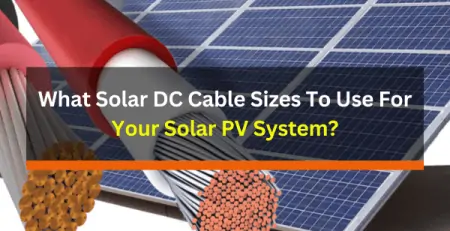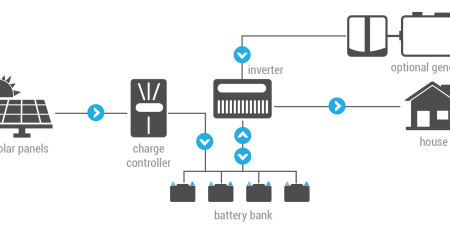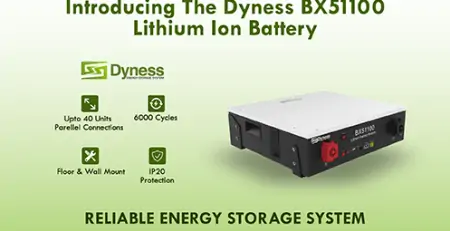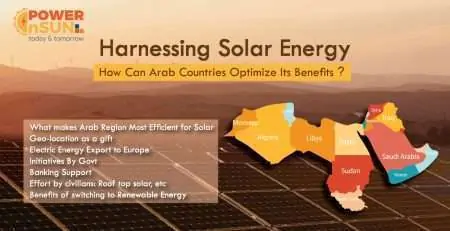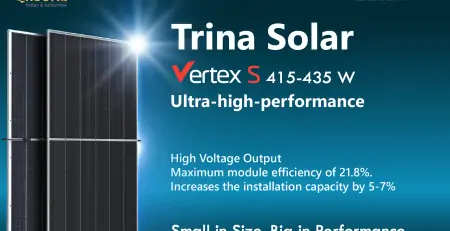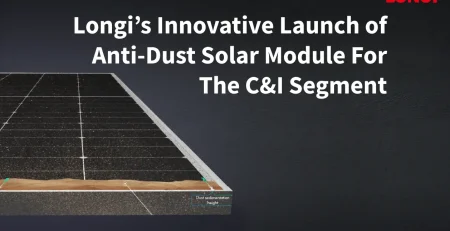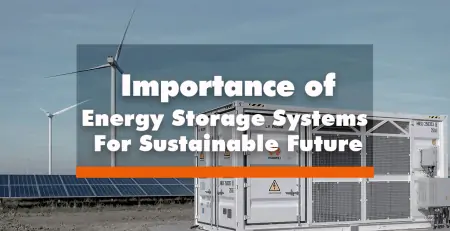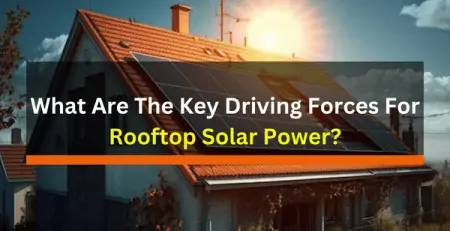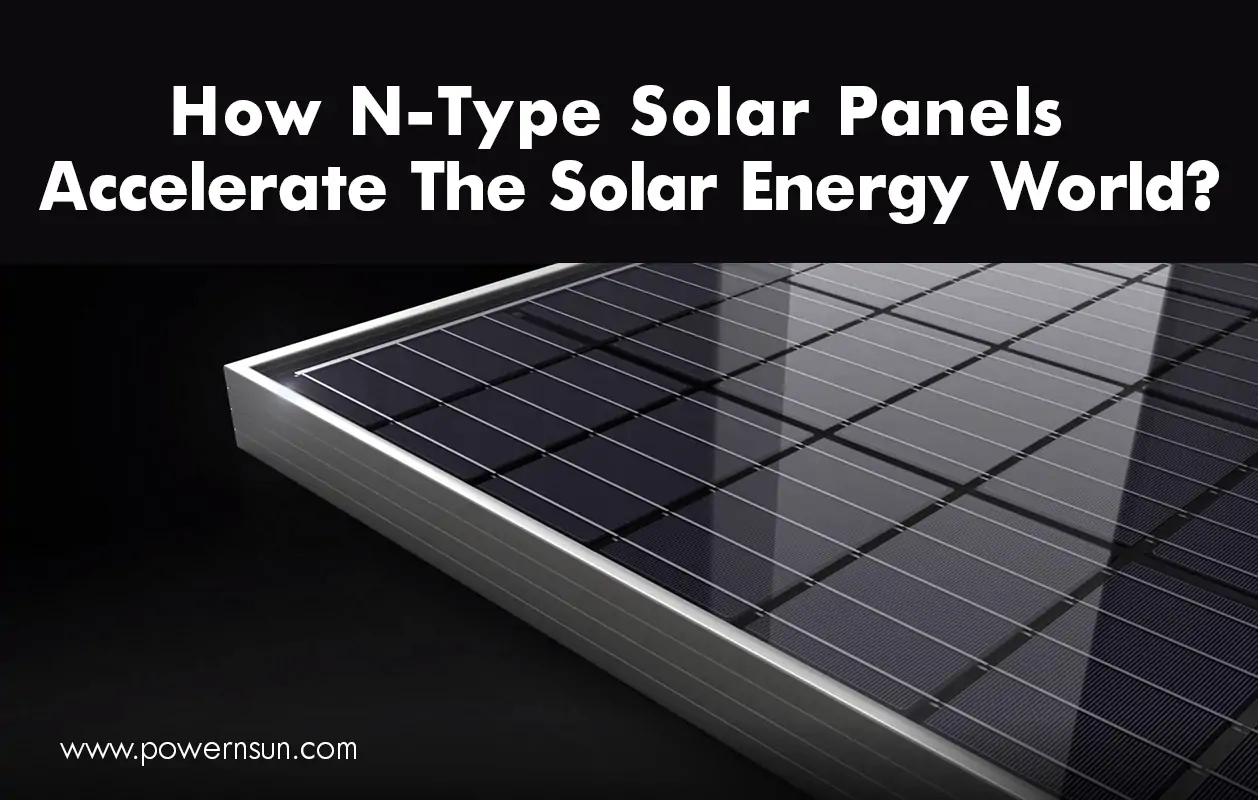
How N-Type Solar Panels Accelerate The Solar Energy World?
powernsun2023-12-14T11:56:05+04:00The search for sustainable and cost-effective solutions makes it important more than ever to harness the power of the sun. Solar deployment has grown enormously and consistently in recent years. Now it is the era where innovations tackle the primary challenge of making the most of the sun and identify ways to better energy yields.
And, N-type solar panels are a promising technology and are surely game-changers in the solar energy world. Let us explore more about these N-type modules and why they are perceived as the future of solar.
What exactly are N-type solar panels?
Typically every solar panel will have a different solar cell composition that brings variation in the efficiency of the modules. Speaking of N-type solar panels, they signify a deep impact on the solar industry. This is because of their unique cell structure.
N-type solar cells are first dosed with a layer of phosphorus which contains much thicker n-type silicon and then contains thin p-type silicon, dosed with boron. Electrical contacts will be applicable to both sides. The P-type, coated with a base layer of boron makes the base positive, while the N-Type dosed in phosphorus has a negative base. This change brings a bundle of benefits, especially, improved efficiency of the modules, better performance, and lower degradation rates.
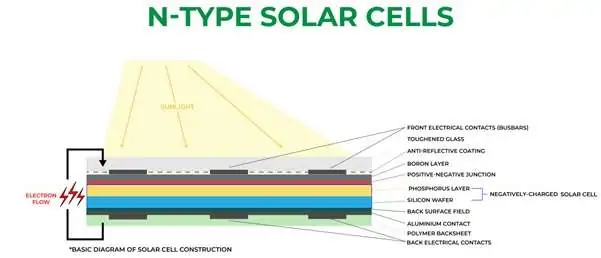
Thanks to the TOPCON technology, it enables more direct sunlight to be converted into electricity and helps in achieving better efficiency. This is comparatively higher than the P-type panels, reaching over 22% efficiency. Even, it is expected to have more potential for greater efficiency in the future.
Breakthrough Efficiency Of N-Type Cells
When it comes to buy solar panels, you could see there are a number of choices. Solar panel manufacturing companies are keen on making them apart from the crowd by introducing the latest and upgraded technologies in module manufacturing. There are various projects indulged in coming up with next-generation panels and among that N-type panels are the promising findings.
So, what is so special about n-type solar panels?
To put it simply, N-type cells of solar panels are highly efficient compared with P-type cells. This indicates that the n-type solar panels are capable of converting more sunlight into electricity, resulting in better efficiency rates. Increased efficiency implies that these solar panels can produce more electricity/per square meter of panel area. And the benefit doesn’t stop there; it also leads to a considerable reduction in the system cost.
Recent reports indicate that the n-type solar modules are equipped with 5.26% better power generation capacity. N-type solar cells are less sensitive to impurities in raw silicon. Hence, irrespective of the quality of the wafers, still you can achieve high efficiencies with n-type panels, without the impact of LID. You can understand well from below:
Higher efficiency = lower levelized cost of energy (LCOE) ($/kWh)
The breakthrough efficiency of the n-type panels enables more power per square foot, indicating the need for fewer panels and lesser space.
N-Type Solar Panels - Advantages of This High-Performance Energy Generation Technology
Higher cell efficiency
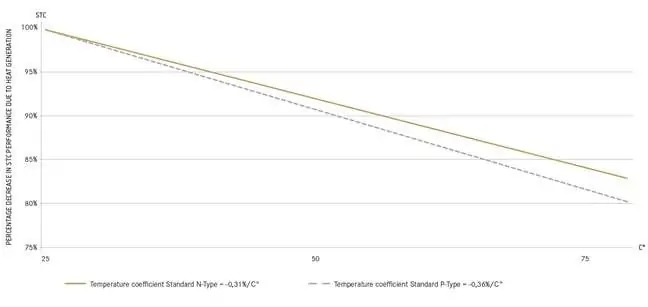
N-type technology has become a major product technology in the solar power industry. This is mainly due to its increased module efficiency. N-type solar panels stand out against their counterpart P-type panels with an efficiency level of 25.7%. Typically, the efficiency rate can be enhanced by more than 30% in the future. Remarkable efficiency is a key advantage of these panels.
Improved warranty
Since N-type solar panels have a lower degradation rate, they are last better and hence are offered with a long-term warranty period by the manufacturers. In addition, the power degradation guarantee is also longer, with most panels it is offered for 30 years.
Optimized temperature Coefficients
Speaking about high-temperature resistance, the N-type is good at removing the efficiency impact from increased temperature ranges or heat. These types of cells possess temperature coefficients of about –0.30%/°C.
In general, N-Type solar modules have a lower temperature coefficient, and this indicates their efficiency decline is marked low under high-temperature conditions. This feature of the panels makes them an ideal choice for those regions with hot climates.
Lower energy losses
The key aspect of loss reduction lies in the base material of n-type solar cells. In n-type solar panels, the base material is made up of silicon and negatively doped with phosphorus, which ultimately helps in reducing the susceptibility of the solar cells to losses.
N-type solar panels do not undergo initial degradation as the positive boron doping reacts with oxygen. Also, phosphorous is least sensitive to metallic impurities that probably formed during power generation, and hence loss is reduced. Due to phosphorus doping, the panels also come with lower LeTID losses.
Lower LID (Light Induced Degradation)
The TOPCon feature of the N-type solar panels makes them less susceptible to LID. LID is a crucial factor that makes it important long-term power for long-lasting performance. N-type TOPCon helps the cells combat LID issues and makes the risk almost zero. The presence of phosphorus within the silicon makes the cells resistant to light-induced degradation.
The LID effect, which is the short but quick degradation under the solar radiation that falls on the cells, can end up in decreased efficiency of the panels. Since LID is less or zero with N-type panels, they are more stable and offer long-term performance.
Environmentally Friendly
N-type solar panels use less energy to produce and also they come with a longer lifespan. Compared with traditional solar panels, these n-type solar panels leave a lower carbon footprint making them the environmentally friendly choice.
Anti-PID performance (Potential Induced Degradation)
Potential-induced degradation (PID) is considered a serious issue when it comes to the reliability factor of silicon solar modules. N-type solar panels have superior resistance to Potential-Induced Degradation (PID), and this enhances the longevity of the modules and enables them to serve as an excellent choice for long-term installations.
Durability
N-type solar modules are less susceptible to degradation that is caused by light and heat. Hence, compared with other traditional panels and P-type modules, these solar panels possess a longer lifespan. Moreover, they demand very less maintenance and are certainly a true and reliable source of electricity.
N-Type Solar Panels Are the Future Of Solar Energy
It is crystal clear that N-Type solar panels represent a bright future of solar energy. This is evident from their obvious benefits of higher efficiency, shade tolerance, durability, and eco-friendliness. So, it’s sure that these solar panels will make a superior choice for installers, including both residential and businesses.
Since it is expected that the further days are the period of solar evolution, it is a wise choice to choose N-type solar panels as they hold great potential in driving efficient and sustainable solar power generation.
If you are in the market for solar panels, then just go for choosing N-Type solar panels and make sure you have a strong part in building a brighter, and more sustainable future.
Highly Efficient N-Type Solar Modules to Power Up Your Solar Power Systems
Powernsun is proud to share that our renowned partner JA Solar is always at the forefront of contributing toward a sustainable future. And now it plays its part perfectly with the latest N-type solar panels. Efficiency is the word most explored by solar installers. Powernsun is equipped with JA Solar’s New N-Type modules that lead to the path that the solar world expects to move on. Our prestigious partner JA Solar’s n-type modules have been found to be 3.9% higher efficiency compared with the p-type PERC bifacial modules. The test results show that these n-type solar panels possess excellent performance. In addition with Bycium+ cells based on n-type passivated contact technology, the energy yield performance of these modules will surpass the expectations.

The latest addition of DeepBlue 4.0 Pro of JA Solar, which is designed on an innovative size of next-generation rectangular silicon wafer has already captured the attention across the globe. Best known for its features of a long lifespan, and low oxygen content, combined with high efficiency, the power of the 72-cell module is expected to reach 630W which exceeds 22.5%. The excellent power generation capabilities and reliable performance of JA Solar’s n-type solar panels are sure to make an immense contribution to accelerating the growth of the solar world.
Powernsun, with its other esteemed partner Trina has its another leap in the photovoltaic industry and has been supplying the solar market with the highly
efficient Vertex N and Vertex S+ PV module models that are designed to suit the needs of utilities and C&I partners. The Vertex N boasts up to 590W of power and offers a module efficiency of up to 22%.
Powernsun as the authorized supplier of Trina solar panel and JA solar panels is right here to serve your needs and accelerate the solar energy world.


